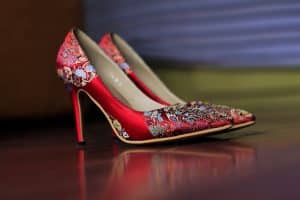Artisanal Approach: Slow Fashion Movement
The fashion industry has long been known for its fast-paced, constantly changing trends and the demand for new clothing styles at an unparalleled rate. However, a movement towards a more sustainable and ethical fashion industry has been gaining momentum in recent years – the slow fashion movement. At the heart of this movement lies an artisanal approach, celebrating traditional craftsmanship and sustainable practices. This article delves deeper into the slow fashion movement and the role of artisanal approach in driving this change.
The Birth of Slow Fashion Movement
The fast fashion industry has been criticized for its detrimental impact on the environment and workers’ rights. The need for quick turnarounds and production of large quantities of clothing has led to the overexploitation of resources, excessive waste, and poor working conditions. In stark contrast, the slow fashion movement aims to champion sustainability and social responsibility in the fashion industry. It emphasizes the importance of slowing down the pace of fashion production and consumption, in turn, reducing the negative impacts.
At its core, the slow fashion movement is about conscious and intentional consumption. Instead of succumbing to the pressure of constantly buying new clothes, slow fashion promotes investing in quality, timeless pieces that are made to last. This approach encourages consumers to develop a closer relationship with their garments and value the craftsmanship that goes into creating them.
The Role of Artisanal Approach in Slow Fashion
Artisanal approach plays a pivotal role in the slow fashion movement, as it highlights the value of traditional craftsmanship and sustainable practices. In an era of mass production, artisanal approach allows for garments to be made with care and attention to detail, using techniques that have been passed down for generations. This not only results in unique and high-quality pieces but also celebrates the skill and creativity of artisans.
One of the key aspects of artisanal approach is the use of sustainable materials and production methods. Slow fashion brands often prioritize sourcing sustainable materials, such as organic cotton or recycled fabrics, to create garments with a lower environmental footprint. Additionally, artisanal approach encourages small-scale, local production, reducing the need for long-distance transportation and promoting fair trade practices.
The Impact of Artisanal Approach in Slow Fashion Movement
The slow fashion movement is not just about creating a more sustainable and ethical fashion industry, but it also has a significant social and cultural impact. Artisanal approach supports local communities and preserves traditional skills and techniques that are at risk of being lost in a fast-paced, globalized world. It also promotes diversity and inclusivity in fashion, as artisanal techniques and designs from different cultures and regions are celebrated and integrated into modern clothing styles.
Moreover, artisanal approach fosters a deeper connection between consumers and their clothes. When garments are made with care and attention to detail, it creates a sense of pride and appreciation for each piece. This leads to a shift in mindset from disposable to long-lasting fashion, encouraging consumers to take better care of their clothes and reduce unnecessary waste.
In Conclusion
The slow fashion movement and its emphasis on artisanal approach have sparked a shift towards more sustainable and ethical practices in the fashion industry. It encourages consumers to be more conscious of their fashion choices and supports local communities and traditional craftsmanship. While the slow fashion movement may not be able to completely eliminate the negative impacts of fast fashion, it is undeniably a step in the right direction towards a more responsible and mindful fashion industry.
Remember, embracing slow fashion and artisanal approach is not just a trend, but a way to make a positive impact on our planet and the people involved in creating our clothes. So, the next time you shop, consider investing in a piece of slow fashion, and be a part of the movement towards a more sustainable future.








